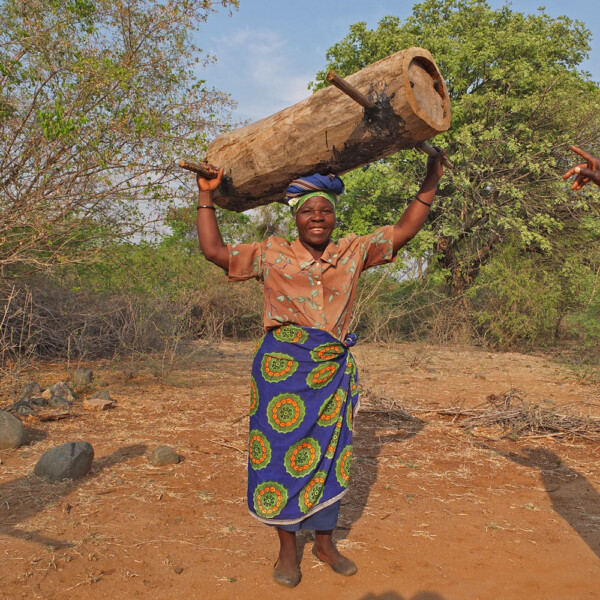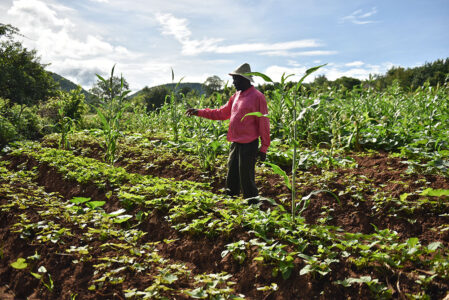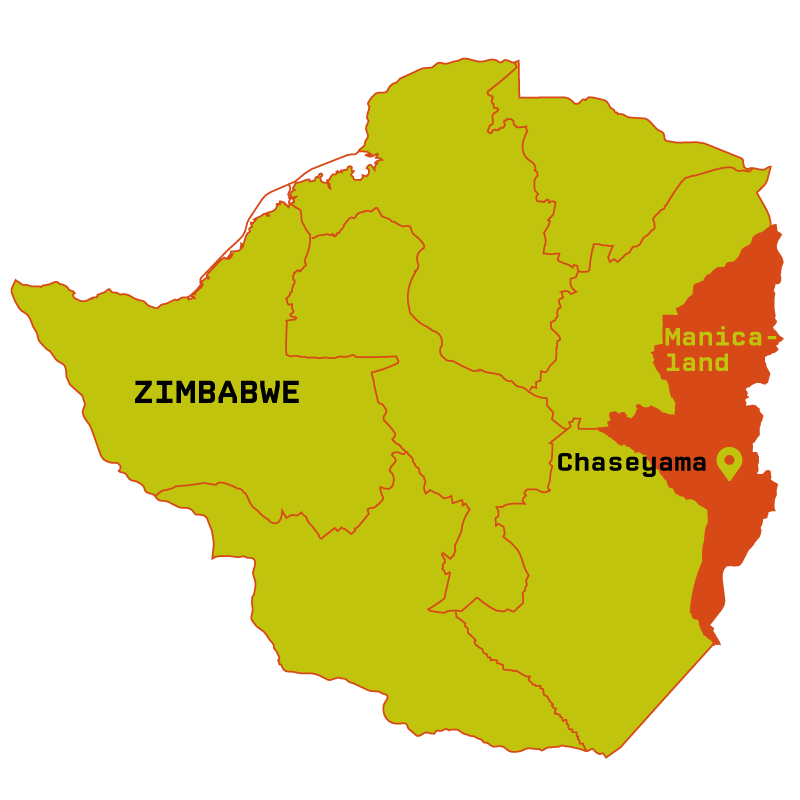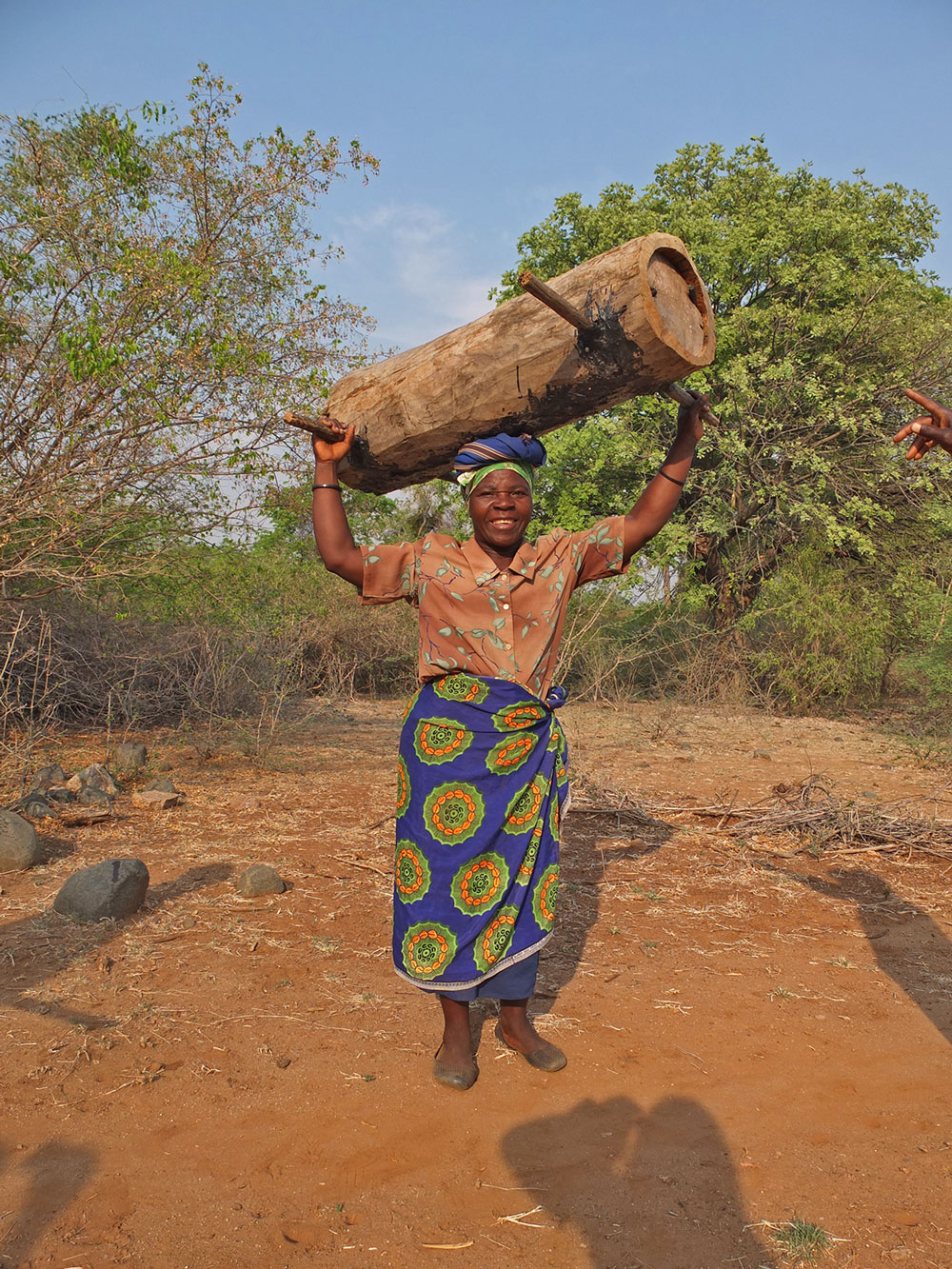Future through sustainable agriculture

For smallholder farmers in the lowlands of south-eastern Zimbabwe, the forest garden in Chaseyama is a beacon of ecological knowledge and dignity. It points a way out of environmental degradation and food insecurity.
In recent years, a dynamic and inclusive agro-ecological movement has grown up around fepa’s partner organisation PORET. Farmers, many of them women or young people, improve their own production in exchange and support the development of the community. The results are good: food security has increased.
The agroecological awakening is complemented by an initiative for a more cooperative pastoralism that uses livestock in a holistic way to also restore natural resources (land fertility, water balance, etc). This is a particularly complex task that only a movement strongly anchored in local society can solve.
Organic farming in the lowlands of Chaseyama
Issues of food security, ecology and the strengthening of smallholder structures shape the development perspectives of rural areas – also in Zimbabwe. The persistently poor economic situation there particularly weakens farmers’ access to means of production. In recent years, Zimbabwe’s naturally disadvantaged agricultural zones in particular have suffered from massive drought. These include the arid lowlands in the southeast, where this project is located.
There, the “Forest Garden” project is creating a nucleus of learning, knowledge and technology exchange and improved sustainable farming practices in the arid areas affected by ecological degradation: Based on a “forest garden” to be redesigned according to permaculture principles, a management of natural bases for food production adapted to local ecological and cultural factors is promoted.
The project creates a new and locally anchored platform for knowledge exchange within the network and stimulates a thought process on sustainable forms of production in the arid lowlands. Careful management of natural resources is taken into account, as is the preservation of local knowledge about adapted seeds and crops. Community care is an integral part of this approach.

The success of the project is measured not least by its impact: many farmers participate, implement ideas on organic farming and thus actively improve their food situation. The project participants in Zimbabwe have already proven that this works. In the south-east of Zimbabwe, one of the most successful permaculture projects in the world has been developed over the last 20 years.
With its concrete activities, the project is laying a foundation for PORET’s long-term contribution to the creation of sustainable development in an ecologically fragile region riddled with social conflict. Within the framework of the project, a kind of ecological model farm is being established in self-help and the necessary infrastructure measures are being implemented. Based on this, a program of workshops with training character and mobile consultations will be carried out. The yields from the forest garden are also used to provide healthy meals for about 30 children in the affiliated kindergarten.
PORET is already well connected and affiliated to various national and regional umbrella organisations and networks.

| fepa partner organisation | PORET |
| Location | Chaseyama, Zimbabwe |
| Target group | Small-scale farmers in the arid lowlands of Chaseyama |
| fepa contribution 2016-2023 | CHF 340’000 |
| fepa contribution 2022-2024 | CHF 480’000 |
With your donation in favour of this project…
…you support small farmers to initiate an ecological turnaround so that they can continue to live from the yield of their agriculture for a long time to come.
Further information – English only
- Further information is available in German.
- Find PORET here online: Website, Facebook and Instagram.
- 2022 Annual Report from PORET.
- Achievements 2021.
- The Permaculture Documentation Handbook (Nov. 2020) by Shadreck Masawi (Author) was produced in collaboration with PORET.
- PORET publishes an article on “Water Harvesting” in ZiMunda Farming Magazine.
- PORET publishes an article on “livelihood” in ZiMunda Farming Magazine.
- In our Journal from October 2017, we portrayed two small-scale farmers. Find here the extensive versions.

